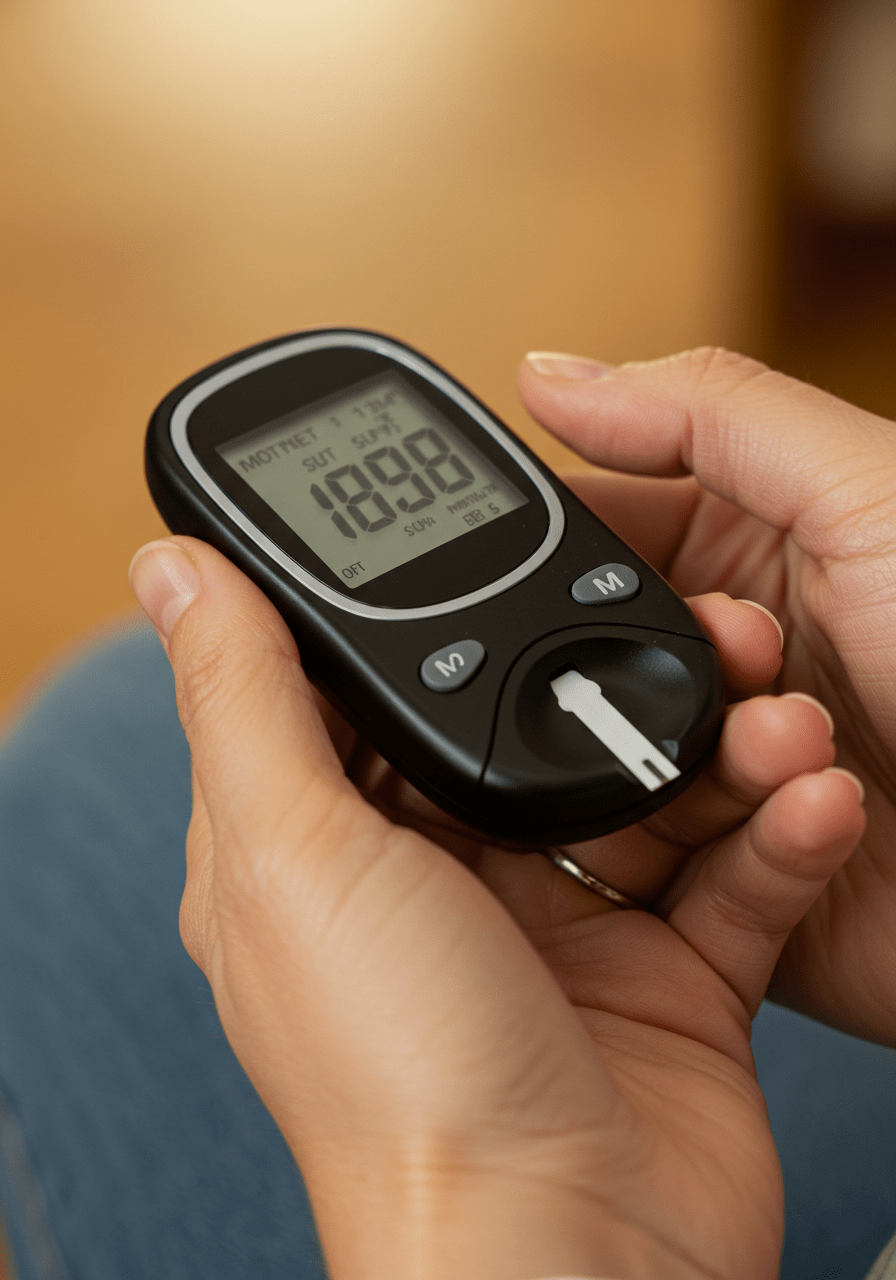1. Introduction
Understanding the complex relationship between blood sugar levels and mood swings is essential for achieving optimal mental and physical health. Fluctuations in blood glucose can have profound effects on your emotional state, energy levels, and overall well-being. This comprehensive guide explores the critical link between blood sugar management and emotional stability, offering valuable insights, practical tips, and recommended products to help you regulate mood swings and enhance mental resilience. Incorporating trending tools such as red light therapy devices and infrared therapy pads can be effective adjuncts for improving recovery and reducing stress-related fluctuations. Discover how lifestyle modifications, supplements, and expert strategies can support your journey toward balanced blood sugar and emotional wellness.
2. What Is Blood Sugar and Why Does It Matter?
Blood sugar, or blood glucose, is the main energy source for your body’s cells, derived primarily from carbohydrate-rich foods such as grains, fruits, and vegetables. Maintaining stable blood sugar levels within a healthy range is crucial for overall health, influencing everything from hormonal balance to brain function. Uncontrolled blood sugar can lead to common issues like fatigue, irritability, and long-term health complications such as type 2 diabetes and cardiovascular problems. Therefore, understanding how to regulate blood glucose is fundamental for reducing mood swings and promoting mental clarity. For additional support, consider integrating essential tools like red light therapy panels to aid in cellular regeneration and stress reduction.

3. How Blood Sugar Affects Mood: The Connection
The impact of blood sugar fluctuations on emotional health cannot be overstated. Sudden drops (hypoglycemia) can lead to feelings of confusion, irritability, and even anxiety, while high blood glucose levels (hyperglycemia) often cause fatigue, brain fog, and mood disturbances. Hormonal responses, such as adrenaline release during hypoglycemia, further exacerbate mood swings. To maintain emotional stability, it’s vital to keep blood glucose levels steady through lifestyle choices and effective stress management techniques. For instance, integrating stress relief practices along with supplements like DKNY women’s leggings for active recovery can support your mood and overall health. Discover more about the cortisol-mood connection and stress management strategies at this resource.
Additionally, controlling blood sugar swings through mindful eating and physical activity contributes significantly to emotional resilience. Techniques such as mindful eating with healthy snacks or incorporating mental health retreats focusing on stress reduction can provide added benefits.

4. Common Symptoms of Mood Swings Caused by Blood Sugar Imbalances
Recognizing symptoms associated with blood sugar-related mood fluctuations can lead to prompt intervention, preventing escalation. Typical signs include:
- Sudden irritability or anger
- Feelings of depression, sadness, or hopelessness
- Unexpected energy surges followed by crashes
- Difficulty concentrating or experiencing “brain fog”
- Increased nervousness or anxiety episodes
5. Strategies to Stabilize Blood Sugar and Improve Mood
Stabilizing blood glucose levels is essential for emotional health. Incorporate these proven strategies into your routine:
- Eat Balanced Meals: Prioritize complex carbs, healthy fats, and proteins to prevent rapid blood sugar peaks and troughs. Nutritional support tools such as infrared light therapy devices can aid recovery and stress management.
- Limit Sugary Foods and Beverages: Reducing refined sugar intake minimizes blood glucose spikes, helping stabilize mood.
- Regular Physical Activity: Exercise, especially yoga or light cardio, enhances insulin sensitivity and releases mood-boosting endorphins. Explore affordable options like affordable yoga retreats for added mental health benefits.
- Stay Well-Hydrated: Proper hydration supports metabolic processes relevant to blood sugar regulation. Consider tools like stainless steel water bottles to encourage consistent hydration.
- Manage Stress: Practice mindfulness, deep breathing, or meditation to reduce stress-induced blood sugar spikes. Stress-reducing retreats, such as emotional healing retreats, can reinforce these habits effectively.
6. Role of Medical Consultation in Managing Blood Sugar and Mood Swings
If persistent mood swings linked to blood sugar fluctuations interfere with daily life, seeking professional medical advice is vital. Healthcare providers can conduct diagnostic tests, such as fasting blood glucose or HbA1c, to identify underlying conditions like insulin resistance or early-stage diabetes. They may also suggest personalized management strategies, including medication or lifestyle modifications. Regular checkups and monitoring are crucial, and tools like red light therapy panels and infrared therapy devices can support your journey toward better health outcomes. For ongoing emotional support, consider retreats like mental health retreats.
Managing blood sugar for mood stability is a multi-faceted process that benefits greatly from expert guidance and innovative wellness tools.

7. FAQs About Blood Sugar & Mood Swings
Q1: Can blood sugar levels cause mood swings?
Absolutely. Fluctuations in blood glucose trigger hormonal responses that directly influence mood, leading to irritability, anxiety, or depression. Managing blood sugar levels through diet and lifestyle is key to stabilizing emotional states.
Q2: How can I stabilize my blood sugar to prevent mood swings?
Focus on consuming balanced meals with complex carbs, healthy fats, and proteins, staying active with regular exercise, and limiting sugar intake. Using tools like infrared therapy can also enhance resilience against stress-related fluctuations.
Q3: Is it possible to have mood swings without blood sugar issues?
Yes, mood swings may also stem from hormonal imbalances, mental health conditions, or lifestyle factors. Consulting a healthcare professional can help identify root causes beyond blood sugar concerns.
Q4: When should I see a doctor about my mood swings and blood sugar?
If mood swings are severe, persistent, or accompanied by symptoms like fatigue, weight changes, or episodes of hypoglycemia, seek medical advice promptly. Early intervention can prevent further health complications.
8. Conclusion
The connection between blood sugar regulation and mood stability is profound and well-supported by scientific research. Taking proactive steps—such as eating a balanced diet, staying physically active, and utilizing supportive health technologies—can significantly reduce emotional rollercoasters related to blood glucose swings. Basic lifestyle strategies combined with professional guidance and innovative wellness tools, including red light therapy devices, can foster long-term emotional and physical health. For a comprehensive approach to mental wellbeing, explore specialized retreats on BookRetreats.com and transform your health journey today.


1 thought on “The Link Between Blood Sugar & Mood Swings”